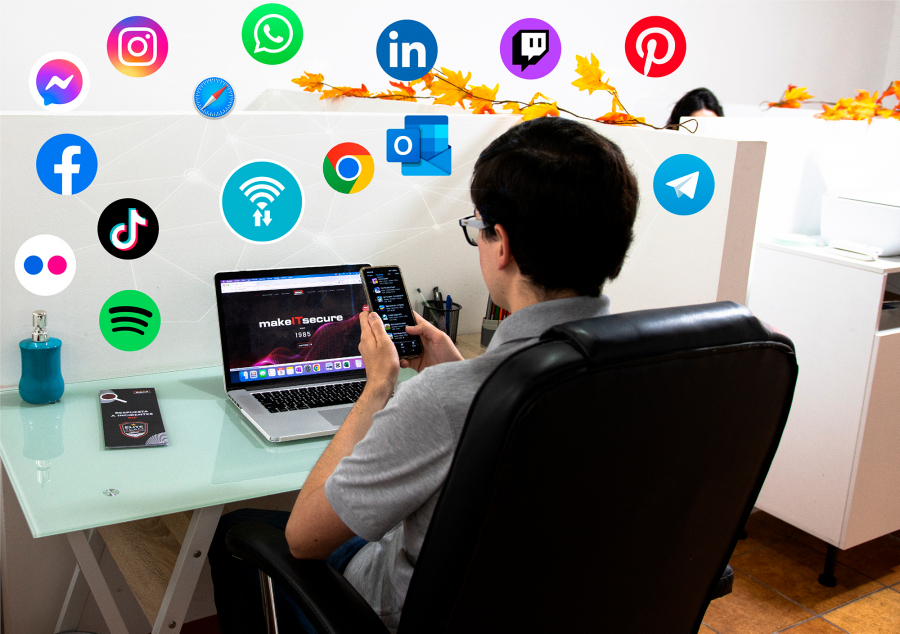This is a special date to recognize the importance of being cautious when surfing the Internet, especially with the increasing and different threats that endanger our devices.
7 tips to surf the Internet safely:
As part of this celebration, José Amado, manager of SISAP's Digital Identities Practice, makes us see that due to the digital transformation we increasingly use our mobile devices (smartphones) to connect with friends, customers and stores, and many times we do this not from the browser but through mobile applications that we install on our smartphones, for this Amado presents us 7 tips so you can safely surf the Internet reducing the risks to your cybersecurity:
1. Be careful with public Internet: there is nothing wrong with connecting to a public Wifi when we are out, but we must be careful with what we do when we are connected. You should never perform banking transactions from a public network, as this can compromise your information since it is more likely that cybercriminals can "intercept" your credentials (username and password).
2. Beware of mysterious messages: if you receive an email or a Whatsapp message from someone unknown, where they offer you money or a job, be careful not to give them your personal information, as well as not to enter any link they send you. This is one of the most common cyber-attack modalities known as "Phishing", where they try to trick you to steal your data or spread a virus in your device.
3. Keep your devices updated: although it may be tedious to constantly update your cell phone and computer, there is a good reason behind this, since each update fixes security breaches that had not been found before, keeping our devices more secure against cyber-attacks.
4. Be careful with your passwords: a very common mistake we all make is to use the same password for everything, causing that, if a cybercriminal could get it, he/she would have access to all our accounts. It is advisable to have at least 3 passwords, so that you can alternate between each one, avoiding using your own name, your pet's name or something related to your personal life.
5. Use two-factor authentication: most email service providers, social networks and banks have made available to us two-factor authentication systems, which add greater security to them and reduce the risk of cybercriminals accessing our personal or professional accounts.
6. Beware of Fake News: the political situation in our region motivates users to be more aware of social networks for information, and attackers are using this interest to create fake news with highly attractive headlines that lead the reader to contaminated sites whose purpose is for the user to download malware that could subsequently steal their information.
7. Avoid surfing these sites: among the sites that present the greatest risk for the user, the expert mentions that they are:
1. Sites for the acquisition of pirated software or licenses
2. Pornography sites
3. Sites for downloading free music and movies
4.Online gambling or betting sites
"Threats to our devices can be found everywhere, so we must make the work of cybercriminals more difficult by taking the necessary precautions when surfing the Internet, taking care of any suspicious page or link", Amado commented, stressing the importance of owning an antivirus to ensure a good cybersecurity defense.
Translated by: A.M
 English
English  Español
Español 
